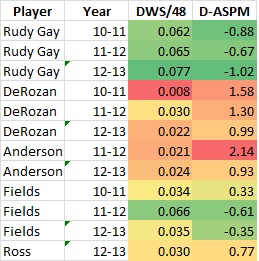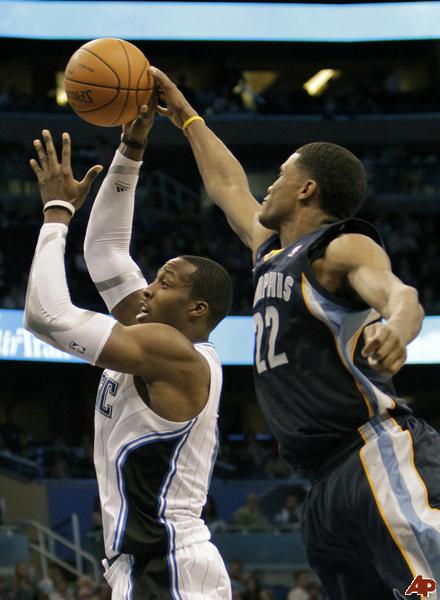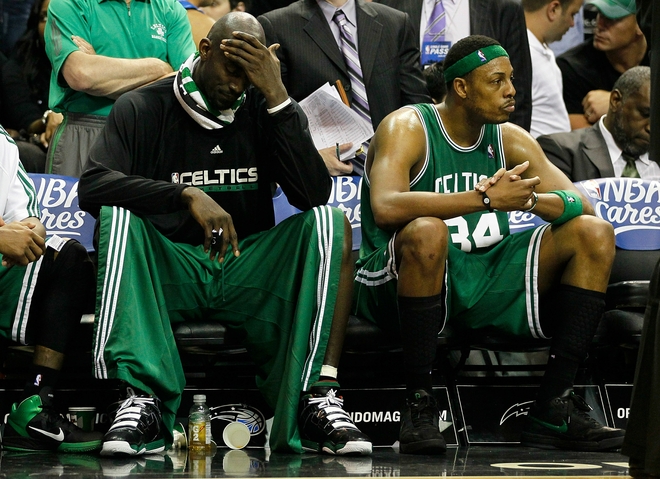When the Raptors acquired Rudy Gay last week, some people were still under the impression that he’s a poor defender. I came to his defense, but mostly just in passing on the Podcast or on Twitter. I had promised to dive in a little deeper sometime this week, and I’ll do that now.
To reiterate my stance at the time of the trade, Gay is not an elite wing defender, nor is he a poor one. He is, however, slightly above-average and also immediately becomes the Raptors’ best wing defender.
In Memphis, Tony Allen and Marc Gasol get a great deal of attention for their defensive contributions, but Gay played a “stay-at-home” kind of role, playing tight man defense on the opposing team’s best wing player. This allowed Allen more freedom to freelance off the ball, an area where he excels. Now, Allen is still a better wing defender than Gay, but the sum of Gay-on-ball + Allen-freelance was greater than Gay-freelance + Allen-on-ball. At least this is what I gather from the video I’ve looked at and from applying logic to having Gay on the opposition’s best weapon if Allen is, in fact, the better defender. Gay got the toughest assignment, in particular, at the end of games, which will be a key role for him in Toronto.
The Raptors don’t have a big as strong defensively as Gasol or another wing defender as strong as Allen, so Gay’s defense becomes even more important here in Toronto (I know Amir is a great help defender, but Gasol is getting Defensive Player of the Year love, so chill). Before we get into some situation-specific information, let’s compare Gay’s defensive metrics with other Raptors. Now, advanced defensive statistics can be flawed, but if we look at enough of them over a large enough sample, we might be able to paint a clear picture. (Note: This table is color-scaled to this group, not to league average.)

The first thing to note is that Gay is 14th in the NBA this year in Defensive Win Shares. Part of this is due to Memphis’ strong defense and Gay’s heavy minutes load, but it’s still extremely impressive.
It really doesn’t take a “stats geek” to see that using these two advanced metrics, Gay is head and shoulders above his new teammates. Again though, these are general stats, and some people may not love the methodology the sites use to determine them.
Let’s look to Synergy, then, to identify particular situations.
 A few caveats are necessary here, mainly that we’re dealing with a relatively small sample of games and I can’t go back any further than this year (because Synergy STILL doesn’t have registration open, so I just get the “basics”). Perhaps most importantly, though, is that these stats don’t control for the quality of the opponent being guarded. In addition, the logging/tracking of defenders and plays is somewhat in question, and a lot of “stats people” I trust don’t love it outside of post-ups and isolations, where the primary defender is obvious.
A few caveats are necessary here, mainly that we’re dealing with a relatively small sample of games and I can’t go back any further than this year (because Synergy STILL doesn’t have registration open, so I just get the “basics”). Perhaps most importantly, though, is that these stats don’t control for the quality of the opponent being guarded. In addition, the logging/tracking of defenders and plays is somewhat in question, and a lot of “stats people” I trust don’t love it outside of post-ups and isolations, where the primary defender is obvious.
We can still see some interesting things though, such as the fact that all the Raptor wings seem to be better handling the pick-and-roll than Gay. This could be a scheme-dependent anomaly, I’m not really sure. In addition we see that DeRozan has done better than Anderson and Gay in isolation, which we can all agree is DEFINITELY because of quality of opposing players. We also see that Terrence Ross, likely because of his length and quickness, is excellent guarding spot-up shooters.
If you’ve ever accused me of cherry-picking stats to prove my point, hopefully the fact that Gay’s overall opponent point per possession here is the worst of the bunch puts that to rest. I am almost positive this is because Gay guards tougher players than any one particular Raptor has been tasked with, in concert with some curious classification by Synergy for non one-on-one situations.
To try and dig deeper, Jared Dubin, a true O.G. from HoopChalk, Hardwood Paroxysm and more, pulled Gay’s 2011-12 numbers for me.
![]() Now, beyond all of these stats, I wanted to clip some video to show as well. Of course, that would be cherry-picking, but so would any videos showing him as a poor defender. I also didn’t want to take any Synergy video, and am not exactly tech-savvy in terms of creating videos (please trust me that I watched a bunch of Grizzlies end-game situations via my League Pass account in the past week, and I’m not blowing smoke up your butts).
Now, beyond all of these stats, I wanted to clip some video to show as well. Of course, that would be cherry-picking, but so would any videos showing him as a poor defender. I also didn’t want to take any Synergy video, and am not exactly tech-savvy in terms of creating videos (please trust me that I watched a bunch of Grizzlies end-game situations via my League Pass account in the past week, and I’m not blowing smoke up your butts).
Below, however, is a good example of Gay’s isolation defense. Amir Johnson is coming to help but never needs to, as Gay manages to force James wide and elevates for a block. You can see he’s quick laterally, but James probably could have driven by him into help if he so chose. Still, the lateral quickness and quick elevation allow him to stay with James and block the shot.
Again, that’s just one example. There are more out there, but people tend not to put “siiiiick defensive play” on YouTube too often.
If you prefer more basic “blocks” and “steals” as your defensive stat of choice (I recommend against this, though they certainly matter), Gay is also 14th in the NBA in steals since he entered the league with 644 in 481 games. Of the top-20 players in that span in terms of steals, he is fourth in blocks with 422. Only 38 players have ever tallied 600 steals and 400 blocks in their first seven seasons, and Gay has done it in fewer games than all but seven of them. He’s fairly elite when it comes to those two stats. Further to more “normal” box score stats, he’s roughly an average defensive rebounder for his position.
Anecdotally, his athleticism and quickness also allow him to recover quickly. Matt Moore from CBS has watched more Grizz video than probably anyone, and he directed me to the November 14 game between Oklahoma City and Memphis. I watched the full game on League Pass again last night and came away impressed, not just at Gay’s defense but how relatively unnoticed it goes. It doesn’t surprise me at all that Gay’s reputation hasn’t caught up with his ability on that end since, as Matt put it to me, “He’s the “stable” defender on Memphis. So while Tony’s reaching and gambling, and Marc’s extending to attack, Rudy’s staying home.” I also noticed a couple of times where, when he did make a mistake, he was vocal about it and took accountability with his teammates, which is important, I think, in cultivating a strong defensive culture, which is obviously a Coach Casey goal.
I’m not telling you to accept my word, accept the stats, or even accept Matt’s word. If you have Synergy or League Pass access, go watch some of Gay’s work with the Grizzlies, specifically against elite players and at the end of games. If you don’t have access to these resources, just keep an eye on it in the coming games. Gay is likely to draw the tough assignments with the Raptors, and while nobody on earth can help keep LeBron James in check for a full game, Gay has shown the ability to be a key cog in a highly effective defensive system.
In basketball, especially on defense, reputations are sometimes slow to catch up to reality. Hopefully this article and the coming weeks will help to highlight Rudy Gay as more than just a one-way player. Again, he’s not elite, but he appears to be average at worst and potentially very good in the right environment. Hopefully he can carry that over from the league’s second best defensive team to its 26th best.



